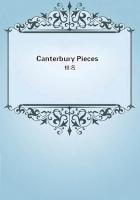Leibnitz followed the same general plan in his philosophy as the physicists adopt when they advance a hypothesis to explain existing data. He has it that general conceptions of the Idea are to be found, from which the particular may be derived; here, on account of existing data, the general conception, for example the determination of force or matter furnished by reflection, must have its determinations disposed in such a way that it fits in with the data. Thus the philosophy of Leibnitz seems to be not so much a philosophic system as an hypothesis regarding the existence of the world, namely how it is to be determined in accordance with the metaphysical determinations and the data and assumptions of the ordinary conception, which are accepted as valid(5) - thoughts which are moreover propounded without the sequence pertaining to the Notion and mainly in narrative style, and which taken by themselves show no necessity in their connection. Leibnitz's philosophy therefore appears like a string of arbitrary assertions, which follow one on another like a metaphysical romance; it is only when we see what he wished thereby to avoid that we learn to appreciate its value. He really makes use of external reasons mainly in order to establish relations:
“Because the validity of such relations cannot be allowed, nothing remains but to establish the matter in this way.” If we are not acquainted with these reasons, this procedure strikes us as arbitrary.
a. Leibnitz's philosophy is an idealism of the intellectuality of the universe; and although from one point of view he stands opposed to Locke, as from another point of view he is in opposition to the Substance of Spinoza, he yet binds them both together again. For, to go into the matter more particularly, on the one hand he expresses in the many monads the absolute nature of things distinguished and of individuality; on the other hand, in contrast to this and apart from it, he expresses the ideality of Spinoza and the non-absolute nature of all difference, as the idealism of the popular conception. Leibnitz's philosophy is a metaphysics, and in sharp contrast to the ****** universal Substance of Spinoza, where all that is determined is merely transitory, it makes fundamental the absolute multiplicity of individual substances, which after the example of the ancients he named monads - an expression already used by the Pythagoreans. These monads he then proceeds to determine as follows.
Firstly: “Substance is a thing that is capable of activity; it is compound or ******, the compound cannot exist without the ******. The monads are ****** substances.” The proof that they constitute the truth in all things is very ******; it is a superficial reflection. For instance, one of Leibnitz's maxims is: “Because there are compound things, the principles of the same must be ******; for the compound consists of the ******.”(6) This proof is poor enough; it is an example of the favourite way of starting from something definite, say the compound, and then drawing conclusions therefrom as to the ******. It is quite right in a way, but really it is tautology. Of course, if the compound exists, so does the ******; for the compound means something in itself manifold whose connection or unity is external. From the very trivial category of the compound it is easy to deduce the ******. It is a conclusion drawn from a certain premiss, but the question is whether the premiss is true. These monads are not, however, something abstract and ****** in itself, like the empty Epicurean atoms, which, as they were in themselves lacking in determination, drew all their determination from their aggregation alone. The monads are, on the contrary, substantial forms, a good expression, borrowed from the Scholastics (supra, p. 71), or the metaphysical points of the Alexandrian School (Vol. II. p. 439); they are the entelechies of Aristotle taken as pure activity, which are forms in themselves (Vol. II. pp. 138, 182, 183).
“These monads are not material or extended, nor do they originate or decay in the natural fashion, for they can begin only by a creative act of God, and they can end only by annihilation.”(7)Thereby they are distinguished from the atoms, which are regarded simply as principles. The expression creation we are familiar with from religion, but it is a meaningless word derived from the ordinary conception; in order to be a thought and to have philosophic significance, it must be much more closely defined.
Secondly: “On account of their simplicity the monads are not susceptible of alteration by another monad in their inner essence; there is no causal connection between them.” Each of them is something indifferent and independent as regards the rest, otherwise it would not be an entelechy.
Each of them is so much for itself that all its determinations and modifications go on in itself alone, and no determination from without takes place. Leibnitz says: “There are three ways in which substances are connected: (1) Causality, influence; (2) The relation of assistance; (3) The relation of harmony. The relation of influence is a relation pertaining to a commonplace or popular philosophy. But as it is impossible to understand how material particles or immaterial qualities can pass from one substance into another, such a conception as this must be abandoned.” If we accept the reality of the many, there can be no transition at all; each is an ultimate and absolutely independent entity. “The system of assistance,” according to Descartes, “is something quite superfluous, a Deus ex machina, because continual miracles in the things of nature are assumed.”















